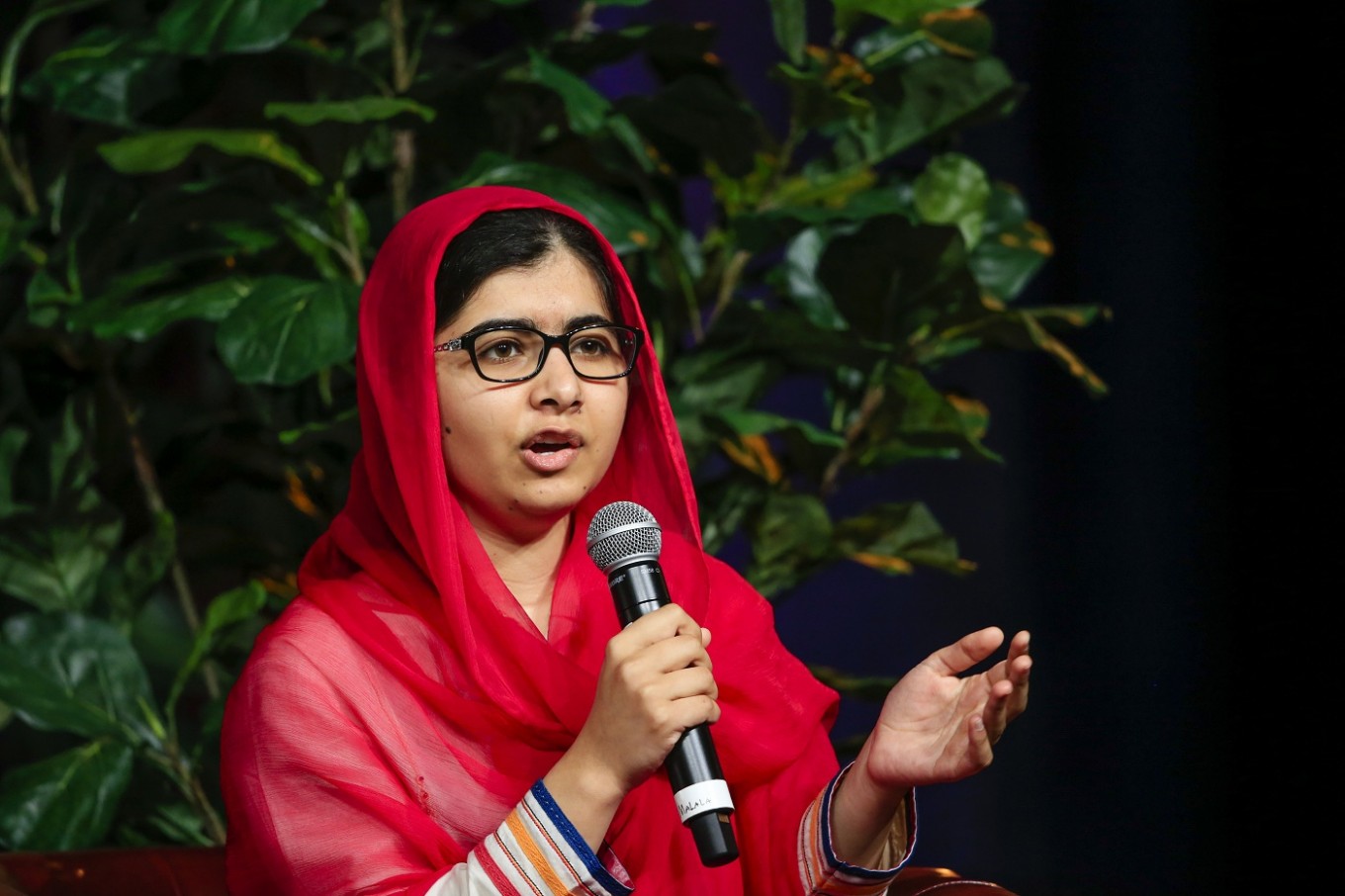Popular Reads
Top Results
Can't find what you're looking for?
View all search resultsPopular Reads
Top Results
Can't find what you're looking for?
View all search resultsMalala Yousafzai urges schooling for all refugee children
Change text size
Gift Premium Articles
to Anyone
N
obel Peace Prize laureate Malala Yousafzai wants world leaders to guarantee all refugee children access to a full 12-year education — something she says is necessary to avoid a lost generation as the planet struggles with the largest number of displaced people since World War II.
The question of how to deal with over 21 million refugees tops the agenda at this month's 71st Session of the U.N. General Assembly, and Yousafzai says because more children than ever are spending their schooling years as refugees, education is crucial.
"It's not just giving attendance, a bit of food that will protect these families in the future, it is also education. You give education to the children of these families and you guide them and you make their future," Yousfzai said, taking time off from her homework to talk to The Associated Press by telephone from Birmingham, Britain.
Yousafzai, now 19, became the youngest-ever Nobel Prize laureate in 2014 when she was recognized for her advocacy of the right of all children to education. She went to Britain for medical treatment after she was severely wounded in a Taliban assassination attempt in northwestern Pakistan where she and her father had defied the Islamic militants by promoting education for girls.
Yousafazi will miss this year's General Assembly because she is focusing on her education, taking exams and applying for college.
But she is sending along a report from the Malala Fund, which she founded with her father, detailing the size of the problem and proposing a new framework enshrining the right to a secondary education much as the 1951 Refugee Convention guaranteed all children a right to a primary school education.
(Read also: Nobel winner Malala visits world's largest refugee camp)
"We're not calling for secondary to the detriment of primary, we're calling for both. I think that one of the main things that has happened since the '51 Convention came into being is that the refugee situation has got much more protracted," said Philippa Lei, one of the report's authors.
In 2015, there were 11 million refugees under the age of 18, accounting for 51 percent of the refugee population and up from 41 percent in 2009.
Meanwhile, the average amount of time a refugee spends in exile is now nearly 20 years — more than double what it was in the 1980s — which has led to a situation where almost 80 percent of the adolescent refugees are out of school, according to the report.
Yousafzai said the situation is especially precarious for young women refugees who are less likely to receive secondary schooling than their male counterparts.
"I'm in the last year of secondary school and when I imagine children who drop out after primary school and when I imagine girls who get married as teenagers when they should be in school, it worries me," Yousafzai said. "Because when they drop out from that level they're not even able to go further in their lives and go to university and achieve their dreams."
Education for refugee children, regardless of the level of schooling, remains woefully underfunded because refugee crises are generally still perceived as temporary arrangements. According to the report, donor nations have, so far, only come up with $111 million of the $536 million the U.N. says it needs for education programs in its 2016 humanitarian appeal.
Compounding the problem, the 10 countries hosting 58 percent of the world's refugees, account for just 2 percent of global wealth, making it hard for them to provide education for their own citizens let alone a large influx of displaced people.
To remedy the situation, Yousafzai is calling on the international community to provide $2.9 billion by 2019 to the Education Cannot Wait Fund to support more than 25 million of the world's most vulnerable children including refugees.
"Education is crucial. I understand that, you understand that, people understand that but when it comes to world leaders' decision making, they completely ignore it, as if they have no knowledge and are completely ignorant," Yousafzai said. "They should understand this because they want their own children to go to universities and get a quality education."







